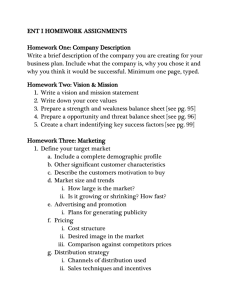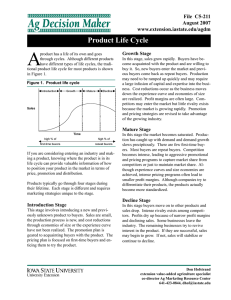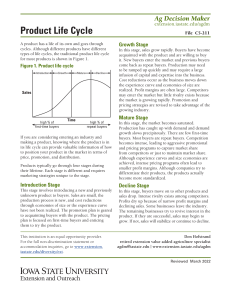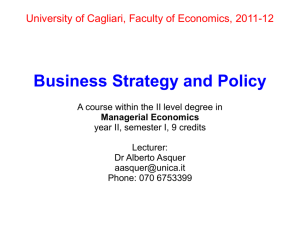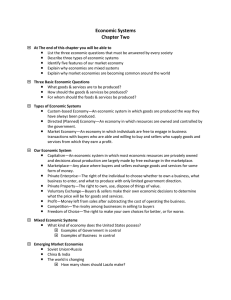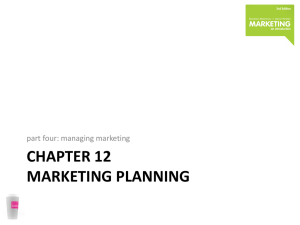Get a Leg Up with Competitive Intelligence
advertisement
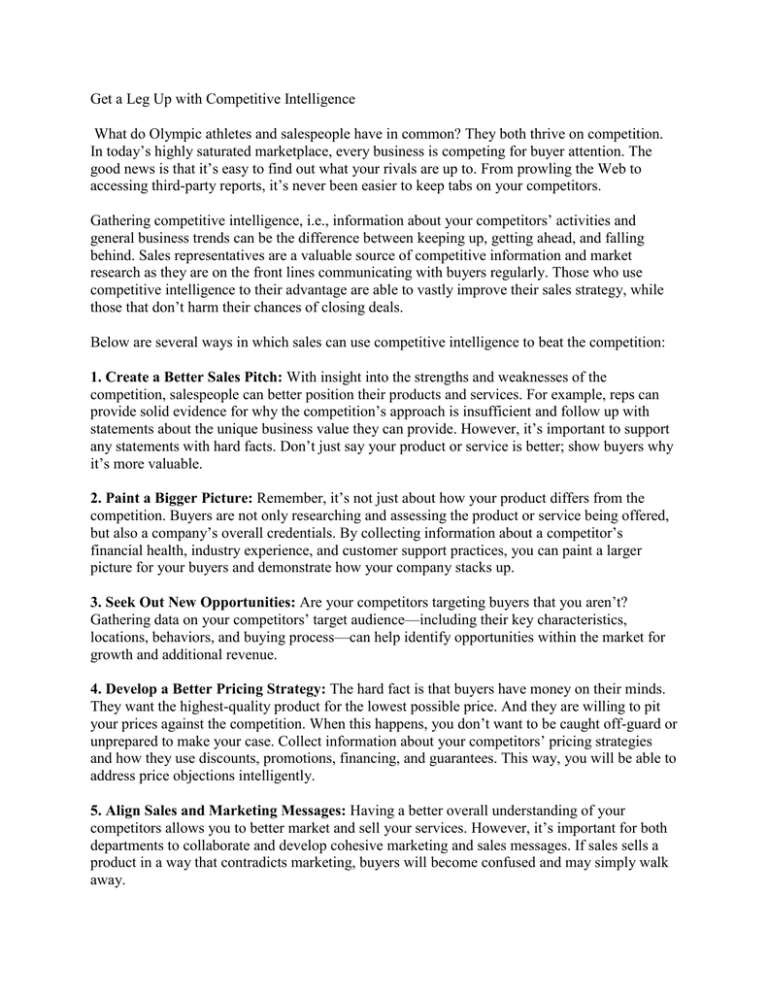
Get a Leg Up with Competitive Intelligence What do Olympic athletes and salespeople have in common? They both thrive on competition. In today’s highly saturated marketplace, every business is competing for buyer attention. The good news is that it’s easy to find out what your rivals are up to. From prowling the Web to accessing third-party reports, it’s never been easier to keep tabs on your competitors. Gathering competitive intelligence, i.e., information about your competitors’ activities and general business trends can be the difference between keeping up, getting ahead, and falling behind. Sales representatives are a valuable source of competitive information and market research as they are on the front lines communicating with buyers regularly. Those who use competitive intelligence to their advantage are able to vastly improve their sales strategy, while those that don’t harm their chances of closing deals. Below are several ways in which sales can use competitive intelligence to beat the competition: 1. Create a Better Sales Pitch: With insight into the strengths and weaknesses of the competition, salespeople can better position their products and services. For example, reps can provide solid evidence for why the competition’s approach is insufficient and follow up with statements about the unique business value they can provide. However, it’s important to support any statements with hard facts. Don’t just say your product or service is better; show buyers why it’s more valuable. 2. Paint a Bigger Picture: Remember, it’s not just about how your product differs from the competition. Buyers are not only researching and assessing the product or service being offered, but also a company’s overall credentials. By collecting information about a competitor’s financial health, industry experience, and customer support practices, you can paint a larger picture for your buyers and demonstrate how your company stacks up. 3. Seek Out New Opportunities: Are your competitors targeting buyers that you aren’t? Gathering data on your competitors’ target audience—including their key characteristics, locations, behaviors, and buying process—can help identify opportunities within the market for growth and additional revenue. 4. Develop a Better Pricing Strategy: The hard fact is that buyers have money on their minds. They want the highest-quality product for the lowest possible price. And they are willing to pit your prices against the competition. When this happens, you don’t want to be caught off-guard or unprepared to make your case. Collect information about your competitors’ pricing strategies and how they use discounts, promotions, financing, and guarantees. This way, you will be able to address price objections intelligently. 5. Align Sales and Marketing Messages: Having a better overall understanding of your competitors allows you to better market and sell your services. However, it’s important for both departments to collaborate and develop cohesive marketing and sales messages. If sales sells a product in a way that contradicts marketing, buyers will become confused and may simply walk away.
